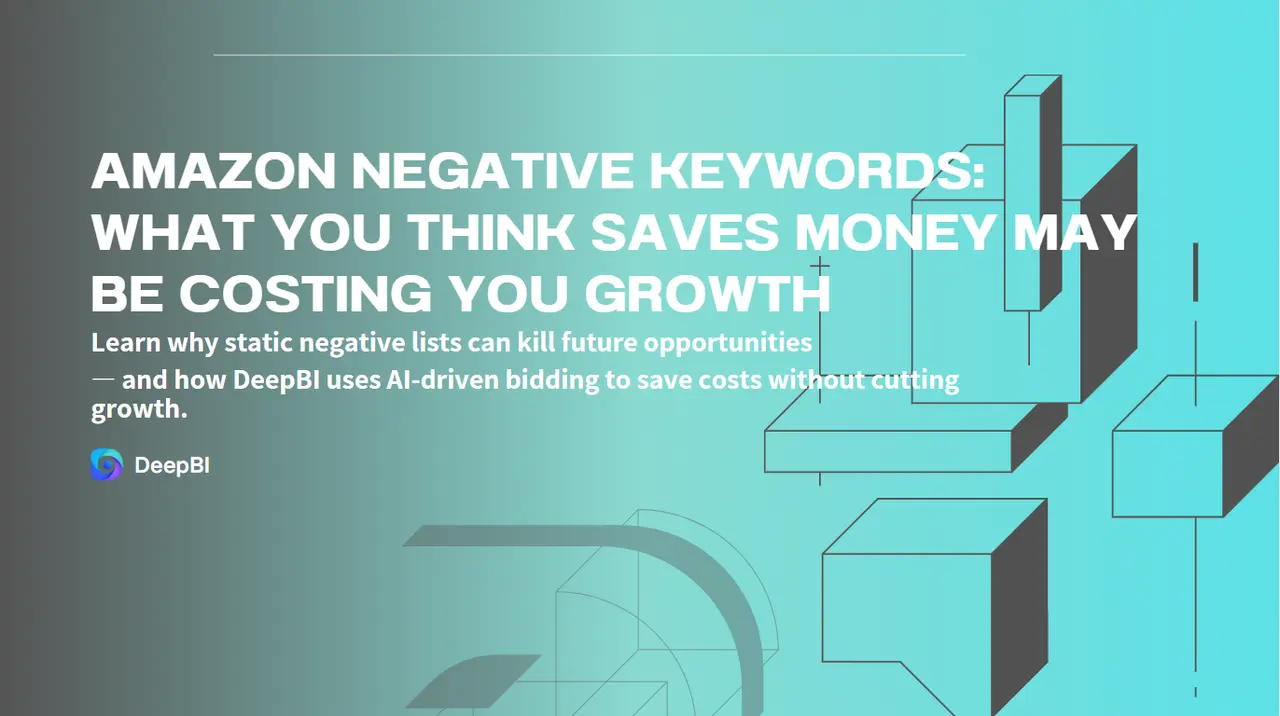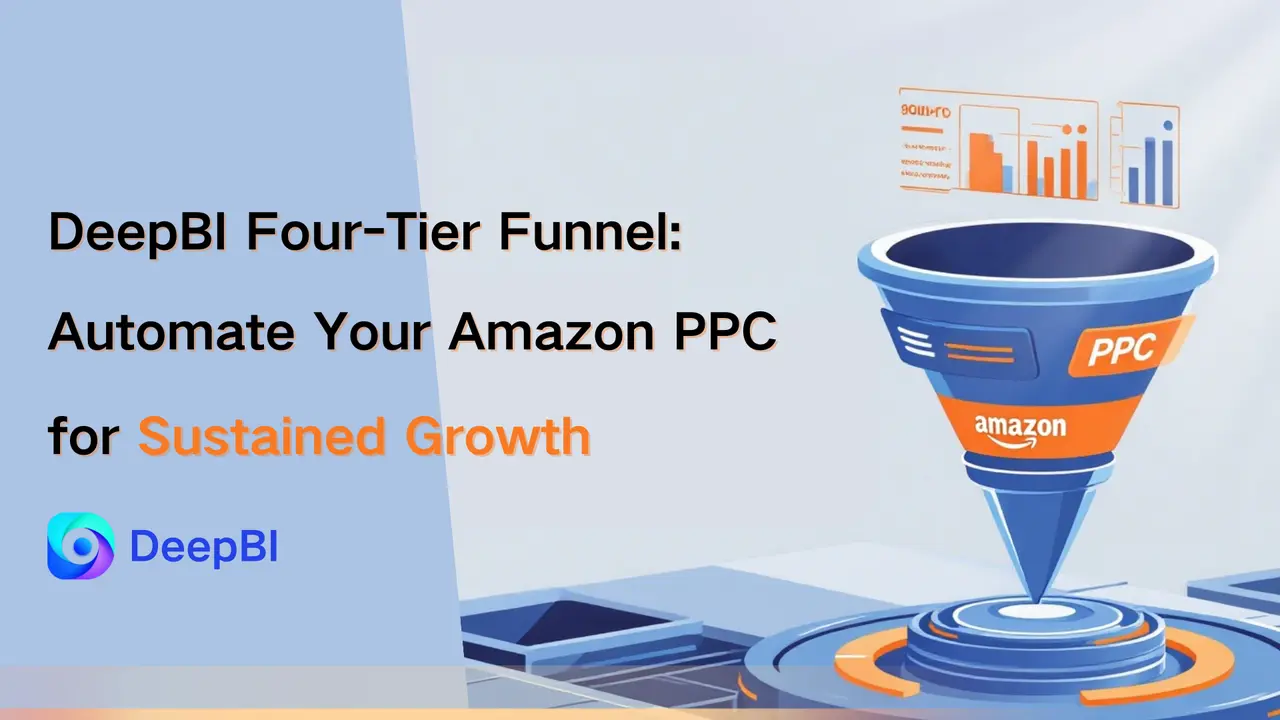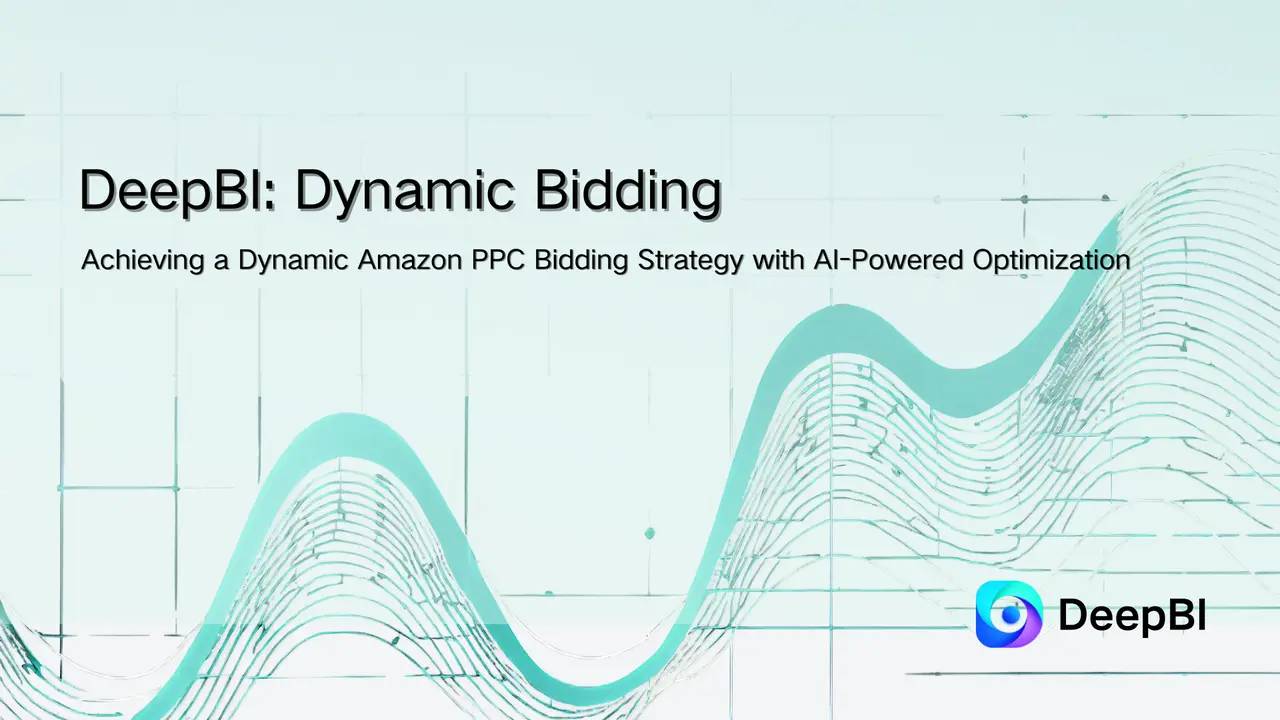Introduction
Negative keywords are often treated as a "must-have" in every Amazon PPC guide. The logic looks simple: block the search terms that don't convert, and you'll save money.
But in reality, the story is more complex. Traditional negative keyword management is not only labor-intensive, but it can also cut off valuable future opportunities. In this article, we'll break down how Amazon's ad system actually works, why static "all-or-nothing" exclusions are risky, and how DeepBI's AI-driven bidding strategy helps you save costs without sacrificing growth.
The Limits of Traditional Negative Keyword Management
- Cumbersome and inefficient
- The "all-or-nothing" trap
- Static lists can't keep up with dynamic markets
Most sellers download search term reports weekly or bi-weekly, manually filtering poor performers and adding them to a negative list. It's repetitive, time-consuming, and easy to miss things.
A negative keyword is binary: once added, it's permanently excluded. The issue? Some terms may just be temporarily unprofitable. Changes in competition, price, or seasonal trends could turn them into valuable traffic later. By cutting them too early, you shut the door on future growth.
Amazon's marketplace is constantly evolving. A term that fails today may convert tomorrow because of a trending product, a competitor shift, or holiday demand. Relying on static negatives leaves your campaigns one step behind.
How Amazon's Ad System Actually Works
To see why negatives can be risky, you need to understand how Amazon Ads really works. It's not just text matching — it's driven by machine learning and buyer intent.
- Search intent matching
- Synonyms & variants
- Auction & relevance weighting
- Attribution window & lag
- Sample size & significance
When a shopper searches for "running shoes," Amazon's algorithm may also connect them to "marathon shoes" or "training sneakers." If you negate "running shoes," you might unintentionally cut off the entire cluster of related queries.
Even with exact match negatives, Amazon can apply them to close variations. For example, negating "men's watch" may also block "mens watch." Sometimes this helps; often, it creates unpredictable exclusions.
Visibility is determined by both bid (CPC) and relevance signals like CTR, CVR, and historical performance. Negating a term removes it entirely from the auction pool. Lowering the bid, by contrast, keeps it eligible at a reduced CPC — giving you limited but controlled exposure to validate performance.
Amazon Ads has a 7–14 day attribution period. Some keywords look unprofitable in the short term but may generate delayed conversions. Premature negatives risk cutting them before the data fully arrives.
Making permanent exclusions after just a handful of impressions or clicks lacks statistical weight. Best practice is to apply impression/click thresholds, then decide whether to bid down → pause → or finally negate — not rush into an irreversible cut.
DeepBI's Smarter Approach: Bid Management, Not Blind Exclusions
DeepBI's philosophy: not all terms are valuable, but negatives too often kill potential prematurely. Our system manages bids dynamically, validating performance with data rather than cutting blindly.
- If a term has high impressions but no spend, the system identifies it as currently unfit.
- If it gathers clicks but fails to convert, DeepBI progressively lowers its bid, reducing wasted spend without fully removing it.
- If a term later shows potential, the system allows it to re-enter at competitive bids.
This approach protects your budget and keeps doors open for future growth.
And it's not theory — it's battle-tested. Across hundreds of managed accounts, dynamic bidding has proven more stable than static negatives, delivering healthier ROI and steadier ACOS improvements.
Why Sellers Benefit
- Save time and energy
- Boost ad efficiency
- Preserve growth opportunities
Leave the repetitive keyword filtering to AI and focus on growing your business.
Budgets continuously flow to terms that work, while ACOS stays under control.
Don't cut off tomorrow's winners because of today's bad snapshot. DeepBI ensures campaigns stay agile.
Conclusion
Negative keywords aren't useless — but static, binary management is risky in a dynamic marketplace. DeepBI offers a smarter way: AI-managed bidding instead of rigid exclusions.
The result? Lower wasted spend, better ROI, and more room for sustainable growth.
👉 Ready to future-proof your Amazon PPC strategy? Get Started with DeepBI today.





